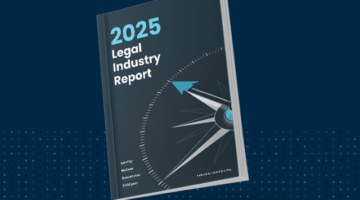
For the last five or so weeks, the news has been nothing but throat punch after throat punch. So, I wasn’t expecting great things when the Supreme Court weighed in on the Oklahoma death row case of Richard Glossip. But the pessimism was misplaced! A majority of the Court found the procedural anomalies in the case warranted a new trial.
Glossip’s case is far from typical. His execution was postponed nine times and the Republican attorney general in the state actually petitioned for a new trial. An independent, pro bono review of the case by Reed Smith revealed “significant evidence of government misconduct and destruction of evidence” led to Glossip’s 1998 conviction. And before Glossip’s 2001 retrial, the review found “key physical evidence” was destroyed and prosecutors knowingly allowed false testimony at trial.

2025 Legal Industry Report: Key Insights for Law Firm Growth & Efficiency
Is your firm keeping up with legal finance and tech trends? The 2025 Legal Industry Report shows how firms optimize cash flow, automate payments, and use AI. Download now for key insights.
Most people who’ve looked at this case are pretty sure Glossip is innocent, so the Supreme Court’s decision likely stops a grave miscarriage of justice. But Clarence Thomas is pissed about it.
He wrote a 44-page dissent in the case, joined by Samuel Alito because who is Tweedle Dee without Tweedle Dumb. And, you guys, he lashed out at his fellow justices in a way that reveals the man has no understanding of irony.
He wrote that the majority “distorts our jurisdiction, imagines a constitutional violation where none occurred, and abandons basic principles governing the disposition of state court appeals.”
Thomas continued that the Oklahoma Court of Criminal Appeals’ refusal to grant Glossip a new trial “should have marked the end of the road for Glossip. Instead, the Court stretches the law at every turn to rule in his favor,” and that his colleagues “bent the law at every turn to grant relief to Glossip.” I mean, if the law has to be “bent” to stop the execution of an innocent man, Thomas’s view of “constitutional violations” is pretty corrupt.

Take Control Of Your Firm’s Finances With Tools Built For Success
Position your firm for long-term growth with better financial visibility and control. Learn how to track performance, manage spending, and plan strategically—download the full e-book now.
 Kathryn Rubino is a Senior Editor at Above the Law, host of The Jabot podcast, and co-host of Thinking Like A Lawyer. AtL tipsters are the best, so please connect with her. Feel free to email her with any tips, questions, or comments and follow her on Twitter @Kathryn1 or Mastodon @[email protected].
Kathryn Rubino is a Senior Editor at Above the Law, host of The Jabot podcast, and co-host of Thinking Like A Lawyer. AtL tipsters are the best, so please connect with her. Feel free to email her with any tips, questions, or comments and follow her on Twitter @Kathryn1 or Mastodon @[email protected].